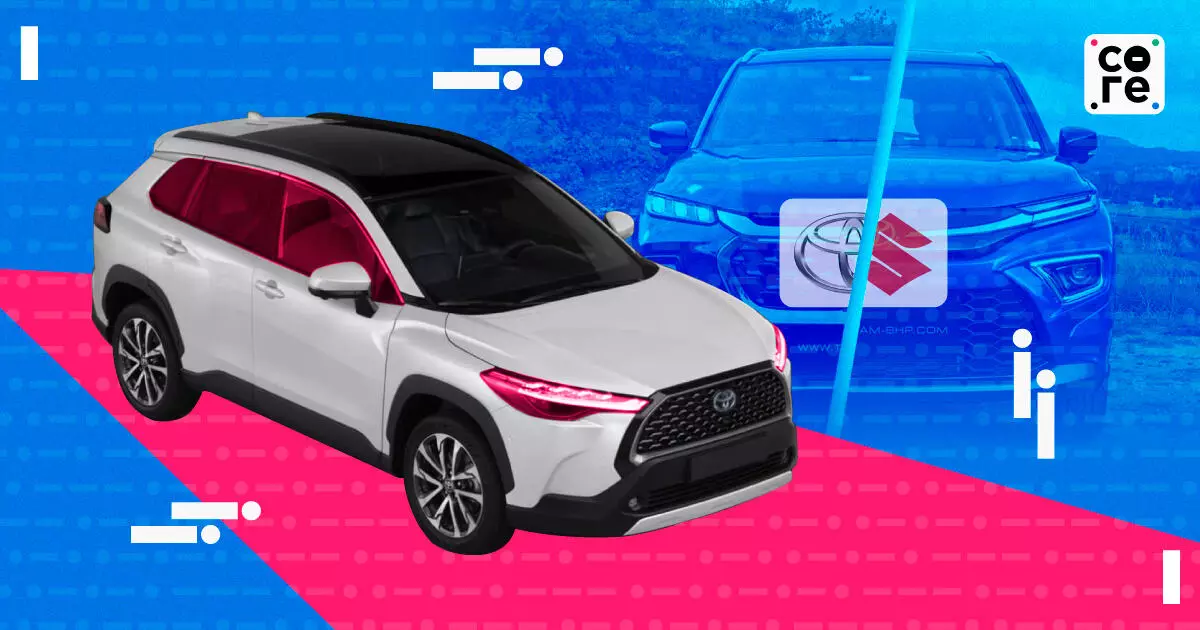
A UP Govt Decision Fuels The Hybrid Vs EV Debate Again
The Uttar Pradesh government recently announced a full waiver on registration tax for strong hybrid cars

The Uttar Pradesh government recently announced a full waiver on registration tax for strong hybrid cars – a move well-received by the ‘hybrid camp’, that is, companies like Maruti Suzuki, Toyota Kirloskar and Honda, which have been betting heavily on hybrids as opposed to electric cars.
The waiver could lower prices by up to Rs 3.5 lakh for customers, and would be applied to strong hybrid cars, like Maruti Suzuki’s Grand Vitara. Demand for strong hybrids is not yet high enough to dent the state’s earnings and this move might push demand.
There’s a general consensus among industry watchers that EVs are the way to go. The Centre’s policy has also been geared towards EV adoption so far. However, EV sales are falling, and hybrids are quickly closing the gap. Plus, the upcoming FAME-III policy is unlikely to offer incentives for passenger vehicles. And now, the UP government’s move is leading to speculation on whether other states could introduce similar moves.
Why?
Hybrid sales have quickly been closing the gap with EVs. In the last quarter of FY24, hybrids made up 2.48% of total passenger vehicles as opposed to 2.63% of EVs. Plus, EV sales dropped sharply in June.
However, EVs definitely enjoy more tax breaks. For one, they attract a goods & services tax (GST) of 5%, against 43% for hybrids, close to the 49% GST levied on petrol/diesel vehicles. The UP government also offers tax concessions on ...
The Uttar Pradesh government recently announced a full waiver on registration tax for strong hybrid cars – a move well-received by the ‘hybrid camp’, that is, companies like Maruti Suzuki, Toyota Kirloskar and Honda, which have been betting heavily on hybrids as opposed to electric cars.
The waiver could lower prices by up to Rs 3.5 lakh for customers, and would be applied to strong hybrid cars, like Maruti Suzuki’s Grand Vitara. Demand for strong hybrids is not yet high enough to dent the state’s earnings and this move might push demand.
There’s a general consensus among industry watchers that EVs are the way to go. The Centre’s policy has also been geared towards EV adoption so far. However, EV sales are falling, and hybrids are quickly closing the gap. Plus, the upcoming FAME-III policy is unlikely to offer incentives for passenger vehicles. And now, the UP government’s move is leading to speculation on whether other states could introduce similar moves.
Why?
Hybrid sales have quickly been closing the gap with EVs. In the last quarter of FY24, hybrids made up 2.48% of total passenger vehicles as opposed to 2.63% of EVs. Plus, EV sales dropped sharply in June.
However, EVs definitely enjoy more tax breaks. For one, they attract a goods & services tax (GST) of 5%, against 43% for hybrids, close to the 49% GST levied on petrol/diesel vehicles. The UP government also offers tax concessions on EVs.
It is expected that with the registration waiver, hybrid adoption will increase. In states where EV infrastructure is not very robust, hybrids might be pushed as a sort of ‘transitionary’ variant, a senior auto analyst told The Core.
One of the main concerns for potential EV users is range anxiety — something that a plug-in hybrid definitely addresses. If the upfront costs of a hybrid — currently more expensive than EVs – were to be reduced, it might push more buyers towards them.
Bad News For EV Cars
The likes of Maruti Suzuki and Toyota have been lobbying for GST reductions on hybrid cars, while others like Hyundai Motor India have opposed this, claiming it would adversely impact sales volumes of their petrol and diesel vehicles.
While the centre’s policy has been strongly geared towards pushing EV adoption, the new FAME-III policy will likely focus more on charging infrastructure and public transport than private vehicles. Passenger vehicles may not get incentives in the new policy.
Market leaders like Tata Motors are already slashing prices and offering benefits on their top-selling SUVs and EV models to boost falling sales.
The Uttar Pradesh government recently announced a full waiver on registration tax for strong hybrid cars

